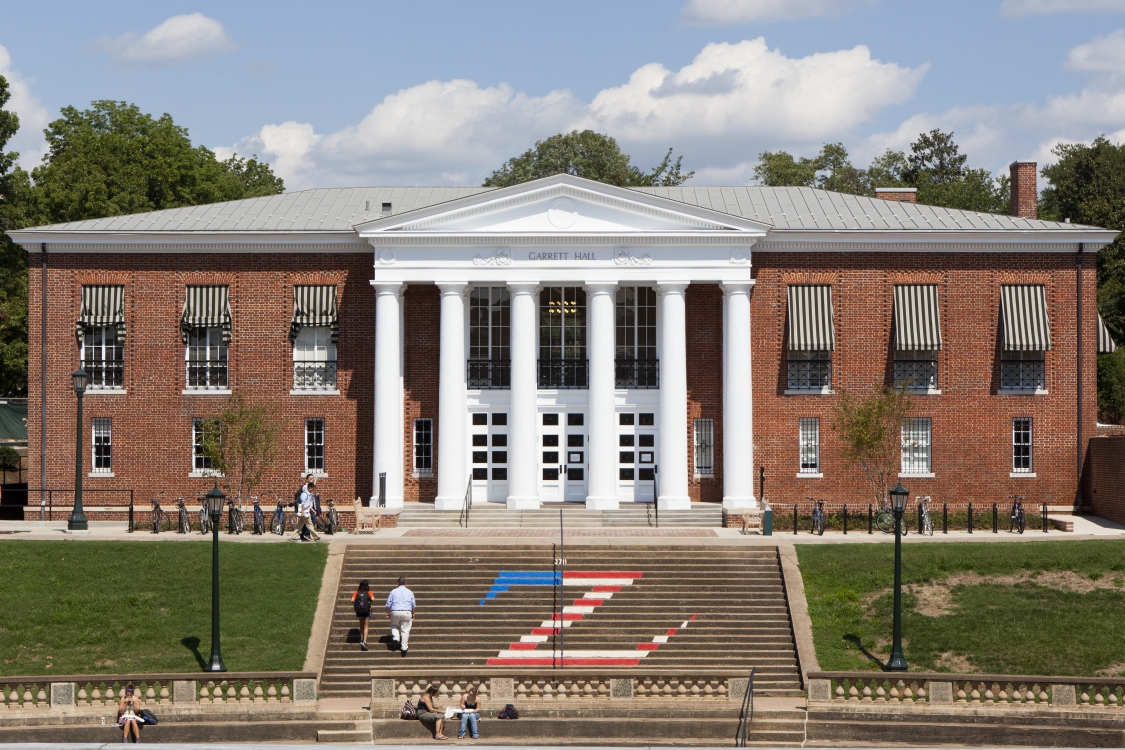The University of Virginia’s Frank Batten School of Leadership and Public Policy is exploring relationships with several top-tier Asian universities as part of a drive to “go global.”
Dean Harry Harding and a multidisciplinary delegation from U.Va. spent nearly two weeks in the region this summer, meeting with school officials and faculty from the Hong Kong University of Science and Technology, Hong Kong University, the Chinese University of Hong Kong and schools in Macau.
Why? In short, as Harding said, “Batten is going global.”
The impetus of the trip was two-pronged: “What I wanted to do was to both explore potential relationships and partnerships, but also to bring some faculty who could have a substantive discussion with both scholars and practitioners about an area of public policy that was of interest to both societies,” said Harding, a China expert.
That area is higher education policy. “It is something of great interest, particularly in Hong Kong. They are going from a British system, a three-year undergraduate program, to a four-year undergraduate program,” he said. The schedule shift raises numerous policy questions of cost, quality, purpose and mechanisms to serve an exploding number of students from mainland China who want to experience Western-style education without having to leave China.
“That is posing enormous access questions,” he said. “They have the same issues we have, in-state versus out-of-state.” In Hong Kong, it translates to “in-Hong Kong” versus the rest of China.
David Breneman, Batten’s senior associate dean for academic affairs, and Brian Pusser, an associate professor from the Curry School of Education, are both experts in higher education policy and were in Hong Kong with Harding, along with Eileen Chou, an assistant professor of public policy at the Batten School.
In addition to meeting with school officials, the group visited the legislative council of Hong Kong and met with the members of the committee on education. Harding, Breneman and Pusser also went to Macau, another special administrative region of China. The trio met with the rector of the University of Macau and the president of Macau Polytechnic Institute.
Aside from issues of higher education policy, Harding said the trip was intended to create new, global opportunities for faculty and students in areas of teaching, learning and research. He said the College of Arts & Sciences’ new Jefferson Global Seminars, held this summer at Hong Kong University of Science and Technology, may provide a model as Batten explores opportunities for its students to study abroad. “The Jefferson Global Seminar model not only gives U.Va. students a chance to study abroad but also gives foreign students access to U.Va. classes and the chance to meet U.Va. faculty and students without having to come to Charlottesville,” said Harding
The school launched its first-ever undergraduate study-abroad program this summer in partnership with the University of Oxford, with the assistance of the International Studies Office and Mark Thomas, a professor of history and director of the U.Va. in Oxford program, which is celebrating its 20th anniversary. Over the course of three weeks, five Batten students and four from the College traveled to Oxford to participate in “Law and Public Policy: Great Britain, Europe and the United States.”
“It had that important, multidisciplinary feature that is so important at Batten,” Harding said. “It brought in law, public policy; it brought in psychology and ethics, and it looked at issues like the environment, social welfare, security and education from a comparative perspective.”
Gerald Warburg, a professor of public policy and assistant dean of external affairs at Batten, said students are the driving force behind the globalization of the curriculum.
“There is a student-driven hunger for transnational content,” he said. Since opening its doors in 2007, he said faculty members have been constantly “rejiggering the curriculum to a more transnational approach to problems … to more global issues – water resources, energy resources, health care from a comparative politics perspective. How do they do it in Europe? How do they do it in Asia?” he said.
Harding recalled an anecdote he said illustrates the student push for more global content. A student from China had enrolled in an unnamed U.S. school of international affairs and found the program wanting. “He found that the school of international affairs was really not that global… he found our program of public policy was more global than the policy program at the school of international affairs, and enrolled here,” he said. “So the students are looking for this. They don’t see borders. They don’t see boundaries between the foreign and the domestic.”
The push for greater international focus is also extending to future hires at Batten. “We are always looking for faculty who have a global perspective,” Harding said. He cited newly tenured professor Christine Mahoney, who works on refugee and humanitarian issues including social entrepreneurship. “There is Jeanine Braithwaite, who works on development issues, Eileen Chou, who is herself Taiwanese-American and has her roots in Taiwan,” he said.
“And I’m hired as a China specialist to be the dean of a school of public policy. I’m far more international than most faculty at schools of public policy would be,” he said. Enrollment at Batten has grown eightfold in seven years and the school will be hiring three new faculty members in the coming months.
Media Contact
Article Information
August 8, 2013
/content/batten-school-makes-connections-china-students-push-international-content

